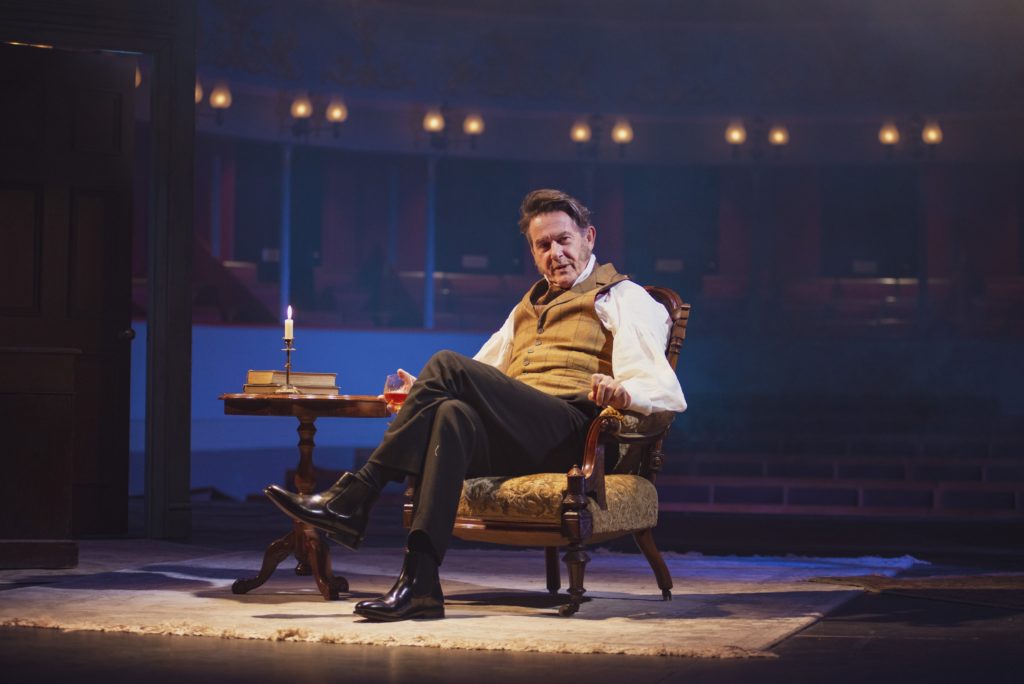
REVIEW: Adrian Lukis in Being Mr Wickham, Original Theatre Company, Haunted Season, York Theatre Royal, today at 2.30pm and 7.30pm. Box office: 01904 623568 or at yorktheatreroyal.co.uk
TWO years ago, 25 years on from filming the BBC adaptation of Pride And Prejudice, actor Adrian Lukis started thinking about still being Mr Wickham, having “defended his dubious reputation” for so long.
What would have become of Jane Austen’s Georgian rogue George, or “What happens to a rake when he can’t rake anymore,” as Lukis asked himself?
Harper Lee revisited the characters of To Kill A Mockingbird in Go Set A Watchman; Danny Boyle’s 2017 film T2: Trainspotting picked up the story of Mark Renton, Sick Boy and co 20 years on; in this instance, the writing falls to Lukis and Georgian storyteller Catherine Curzon.
Refracting Austen’s vilified character through their shared lens for a one-man character study set 30 years down the line of worn time, Lukis’s Wickham is now 60, still charming, with aching knees and wife Lydia waiting in the bedroom, as he tells his side of the story.
Lukis reimagined him living in reduced circumstances, having gambled his way through his £3,000 pay-off from Darcy, no longer reliant on his looks and his wits, having left behind the dissolute London life. Maybe he was residing in Yeovil, or maybe running a small business in Malmesbury, definitely he was looking out of the window for the tittle-tattle of life across the way, so he told Thursday’s audience in the Q&A after the 75-minute performance.

Lukis constructed an earlier version of this monologue but found his ageing Wickham too sleazy. Lockdown enabled him and Curzon to create Wickham mark two: a rake raking over the coals and setting the record straight. Actors must always empathise with whoever they play, runs the advice to those playing the villain of the piece, and Lukis warms to that task with relish as he reacquaints himself with “my old friend”.
Yes, Wickham was “a bit of player”, yes he behaved badly, even disgracefully on occasion, but as Lukis said afterwards, but wouldn’t you rather have a night out with gorgeous, affable George than Darcy?
Significantly, Lukis said he treated this Wickham as a new character when writing and playing him, rather than as the Austen rogue he played in Andrew Davies’s adaptation. What emerges is a story of loss, exits; his rueful reflections on Elizabeth Bennet, Darcy and Lord Byron; the blood, the smell, the gore, of the Waterloo battlefield. What has Wickham achieved at 60? He has survived, he says. He has survived, he repeated.
Being Mr Wickham is beautifully detailed, from the elaborate Georgian phrasing of Lukis and Curzon to Libby Watson’s faded drawing room design, to Guy Unsworth’s immaculately composed direction and Lukis’s eloquent, elegant performance.
Life with a scandalous scoundrel is never dull and it certainly still isn’t in Being Mr Wickham, even if the heat has gone out of the day and those knees are aching ever more.
One last story from the Q&A: when first meeting for filming, actress Susannah Harker (Jane Bennet) misheard Lukis, thinking he said he was the wig man and promptly asking him to make adjustments. No, he would be playing Mr Wickham, he corrected her, and he is still being Mr Wickham to charming effect all these years later.
Review by Charles Hutchinson

